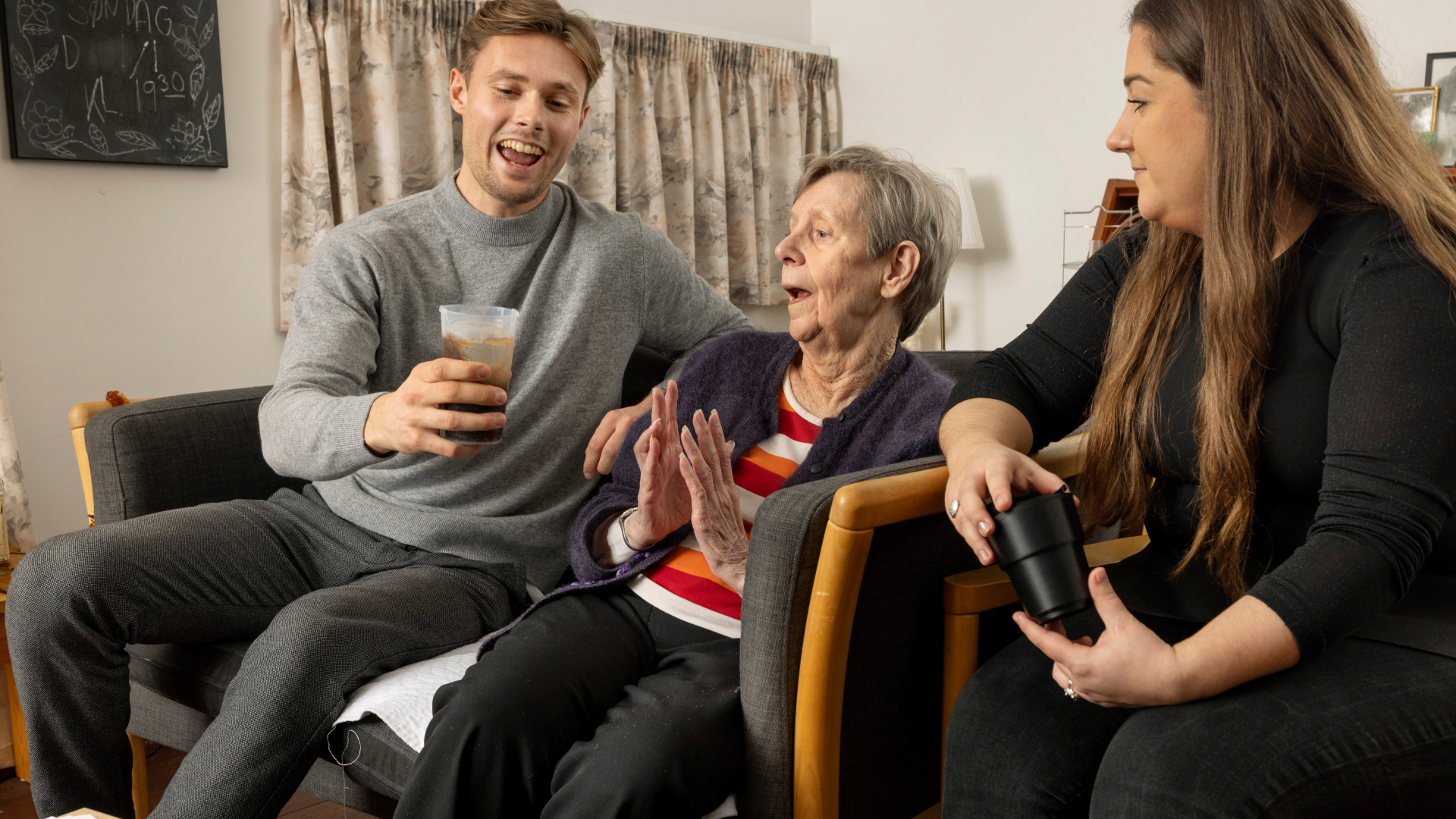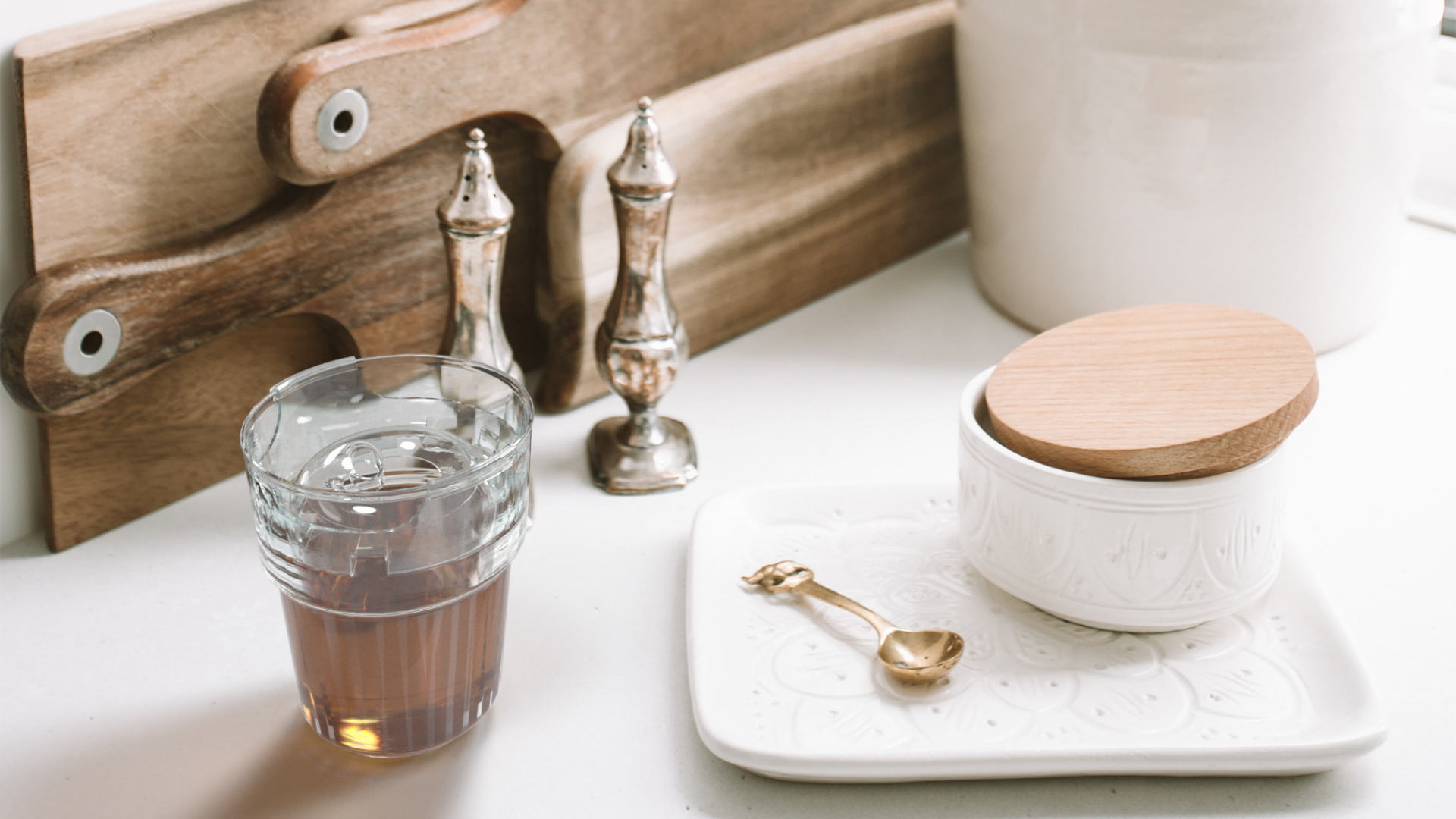When the two DTU students Laila Sofie Midjord and Casper Gramhald-Nørland recently visited a rehabilitation centre on the island of Zealand, the purpose was to talk to the centre’s occupational therapists about their new, specially designed drinking glass: DrinkSaver.
DrinkSaver looks like an ordinary glass, but it has a built-in, hidden, curved ‘lid’, which directs the liquid back into the glass to prevent spilling. It is useful if, for example, your hand is shaking or has sudden jerky movements, and the solution is therefore particularly suitable for people with mobility impairment such as cerebral palsy and Parkinson’s disease.
However, during Casper and Laila’s visit, they met a 40-year-old man who had motor challenges and was in a wheelchair due to a previous brain haemorrhage. He told them that his involuntary arm movements cause him to drink everything from coffee to beer from a straw to avoid spilling.
Casper and Laila had the man pour a coke into the DrinkSaver prototype they had brought, which he then drank from. The man was greatly surprised when he didn't spill a single drop even though the glass went everywhere.
“This was a great relief for him. He described it as undignified always having to be fed by someone else and to drink from a straw. Something as simple as being able to drink without help and without spilling gave him back a sense of independence and dignity,” says Casper Gramhald-Nørland, who subsequently gave the man a handful of DrinkSavers for his own use.
In the five years that Casper Gramhald-Nørland and Laila Sofie Midjord have been working on developing DrinkSaver, their guiding goal has been to give people with mobility impairment and swallowing difficulties a normal and dignified drinking experience without the use of conventional aids. When they left the rehabilitation centre that day, it was therefore with a feeling of being on the right track.
Students as well as entrepreneurs
Prior to the visit had gone countless, unpaid working hours, extensive questionnaire surveys, interviews with professionals, applications for funding, and tests of private individuals and in nursing homes. All coordinated alongside—and sometimes in interaction with—their joint full-time study programme in Design and Innovation at DTU.
“We’ve spent a lot of time on this in addition to our studies. But we’ve also been allowed to integrate a large part of our work with DrinkSaver into our studies. For example, we’ve had special courses where we’ve participated both as students and as project managers from a company, and we’re now writing our Master’s thesis, using DrinkSaver as a case,” says Laila Sofie Midjord.
They also came up with the idea for DrinkSaver during their studies. In the first semester, the students were tasked with making festivals more accessible to people in wheelchairs. The discussion quickly turned to how difficult it must be for a wheelchair user to have to handle both a wheelchair and a full glass of draught beer in the middle of a packed festival site. This led to the development of the first version of DrinkSaver: a splash-proof draught beer mug for use at festivals. But then came the coronavirus pandemic.
“Many of our partners stopped responding. For example, we had an agreement with a supplier who wanted to stock DrinkSaver and sell the product to festivals. But suddenly no one was interested in stocking up on anything other than hand sanitizer and face masks,” says Laila Sofie Midjord.
The coronavirus pandemic was a turning point that forced the two entrepreneurs to either drop the idea or think innovatively. The outcome was a further development of the product and an expansion of the market potential. DrinkSaver went from being an event-dependent draught beer mug to becoming a water glass for everyday use by private individuals, nursing homes, and other municipal facilities.

